The world has England to thank for some of it’s greatest chamber, classical, choral, and orchestral music. From the timelessly famous Messiah of Handel to the ultra progressive political pieces of modern composer Max Richter, British composers have paved and re-paved the landscape of music.
Here are ten of the greatest British composers of all time.
1. Gustav Holst
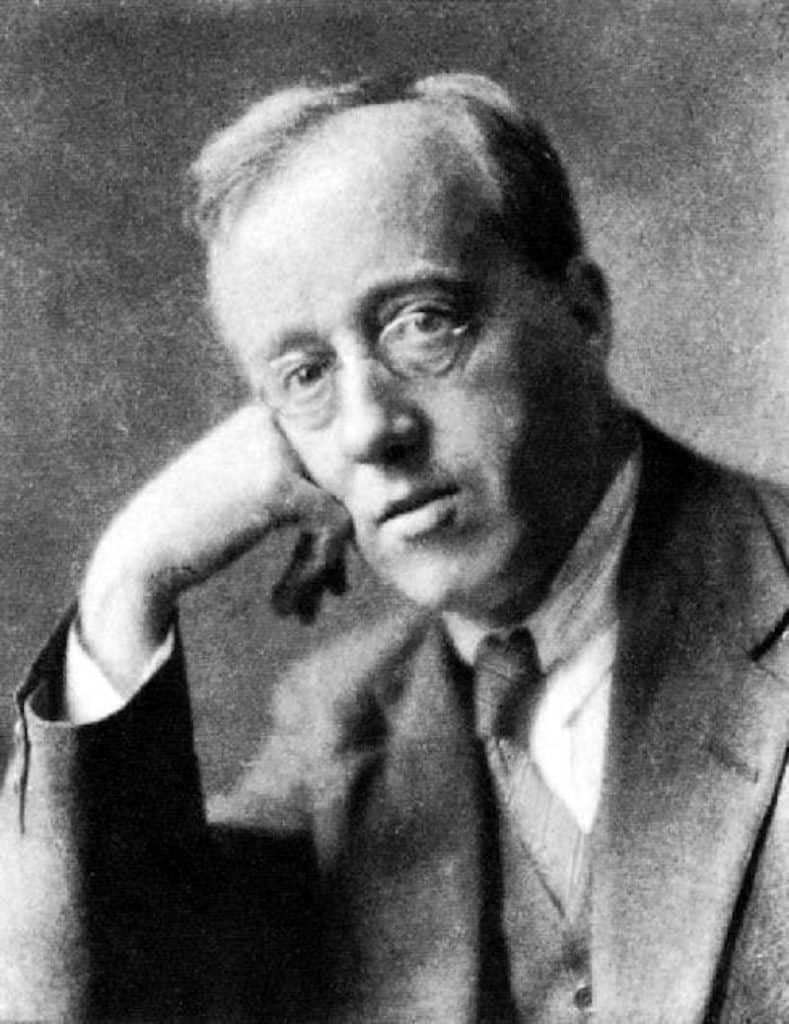
Gustav Theodore Holst was an English composer born in Cheltenham, Gloucestershire on September 21st, 1874.
He came from a long line of European professional musicians, so he learned early to play the piano (which he loved) and the violin (which he hated).
At 12 years old, he added the trombone to his repertoire, a wind instrument in hopes it would improve his asthma.
Although his father tried to discourage composition in favor of playing, Holst was drawn to composition because his asthma and neuritis made playing difficult.
He attended Oxford and the Royal College of Music, all the while composing as much as we could.
As well as being one of the most famous british composers he was also an arranger and educator teaching throughout his career.
In 1892, some would consider his first big break, his wrote Lansdown Castle (also known as The Sorcerer of Tewkesbury), which was performed at Cheltenham Corn Exchange the following year.
Holst tried to enlist in WWI, but was rejected because of his health problems and physical condition.
He dove into his compositions as a coping mechanism for his frustration.
This led him to produce The Planets, a suite of seven orchestral pieces named after each of the planets in the solar system.
In 1918, he was able to volunteer to teach music to troops, finally combining the love of his art with his desire to serve.
After living a life that was full of success but much too short, Holst passed away from heart failure related to complications from his medical problems on May 25th, 1934 aged 59.
2. Henry Purcell
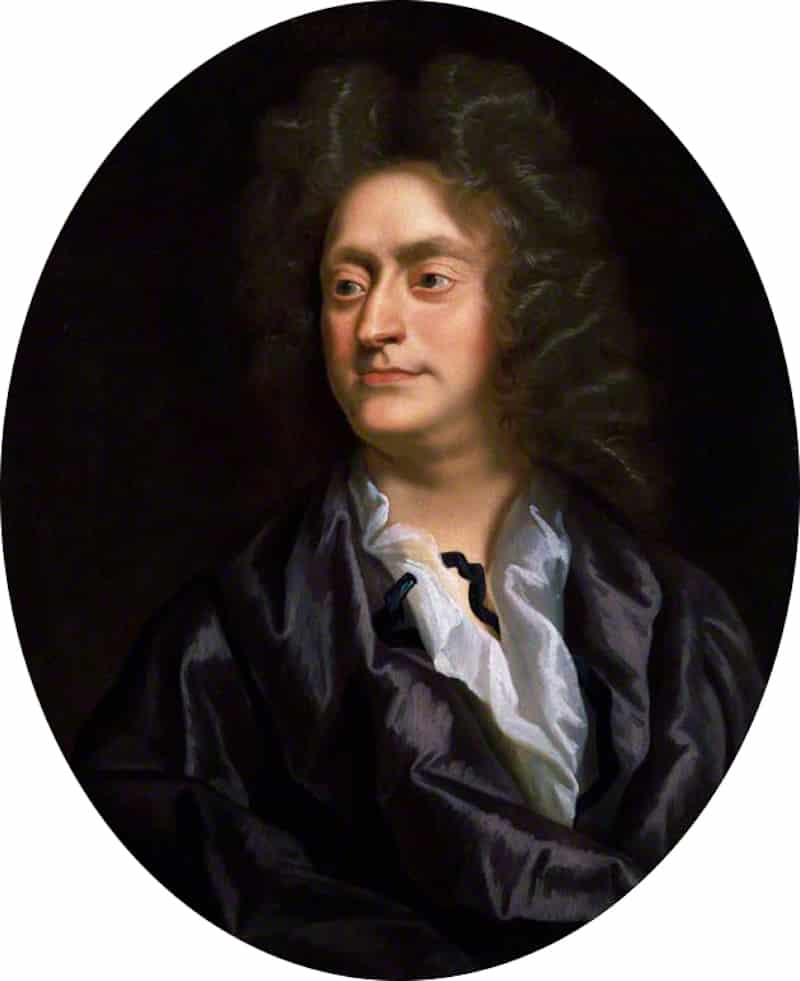
Henry Purcell was a famous Baroque composer who also incorporated French and Italian styles from his time period.
He was born on September 10, 1659 in Westminster, London, to a very poor family.
When he was just 5, his father died, and his uncle made sure he became a chorister like his brothers and many others in the family.
He sang at the Chapel Royal and studied under many notable composers.
When his voice broke in 1673, Purcell switched from chorister to assisting the organ-builder, John Kingston.
Kingston was also keeper of the King’s wind instruments.
Rumor has it that he had already begun composing by this time.
His earliest recorded work was an ode for the King’s birthday in 1670, when he was still just a young boy!
He went on to study at the Westminster School and began working as copyist for the Westminster Abbey in 1676.
Purcell returned to his roots when he became the organist at Chapel Royal in 1682.
He also spent a lot of time in the late 1600s and early 1700s composing pieces for orchestras and the theater.
His most famous piece was Te Deum, which was performed in rotation with Handel’s pieces titled Utrecht Te Deum and Jubilate.
He also composed one anthem and two elegies for the funeral of Queen Mary II.
He died November 21, 1695 while still in his thirties, just as his career was taking off.
While no one knows his cause of death for certain, they believe he may have passed away from tuberculosis and is buried next to the organ in Westminster Abbey.
3. Benjamin Britten
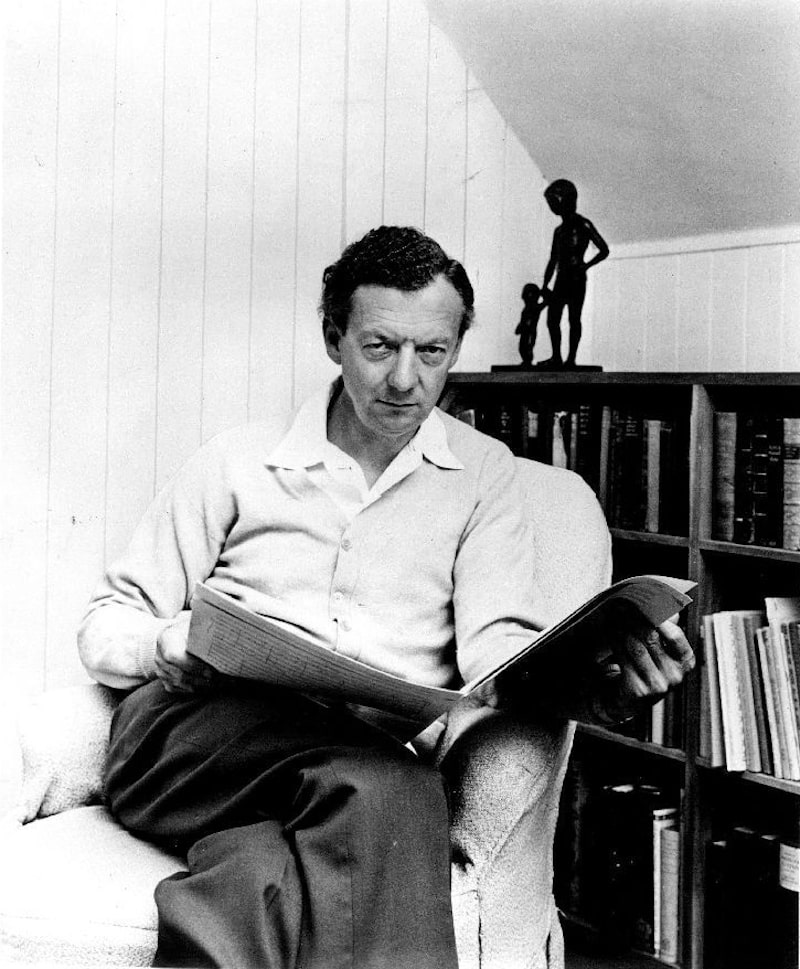
Edward Benjamin Britten was a composer who also conducted and played piano.
His work varied from opera and other vocal pieces to orchestral and chamber music.
Britten was born on the 22nd November 1913 and while there was no history of musical talent in his family, he began to show it very early on.
He began learning piano from one of the sisters at the dame school he attended.
He studied at the Royal College of Music in London as well as privately with the well known composer Frank Bridge.
At one point during the 1930s, he began to experience great criticism for his work in England.
He became friends with American composer Aaron Copland during a brief stint in America in the early 1940s and claims that Copland influenced many of his later works.
It took him a while to regain popularity upon his return to England in 1942, but in 1945, his pieces for the opera Peter Grimes launched him into fame and success.
He composed 14 additional operas of various sizes and co-founded the annual Aldeburgh Festival in 1948.
Many say that his final opera, Thomas Mann’s novella turned opera titled Death in Venice, was his very best.
He wrote it in response to being told by a doctor that without heart surgery, he would surely die within 2 years.
He had the surgery, and though he suffered a stroke, lived another 6 years until he passed of congestive heart failure on the 4th December 1976.
4. Edward Elgar
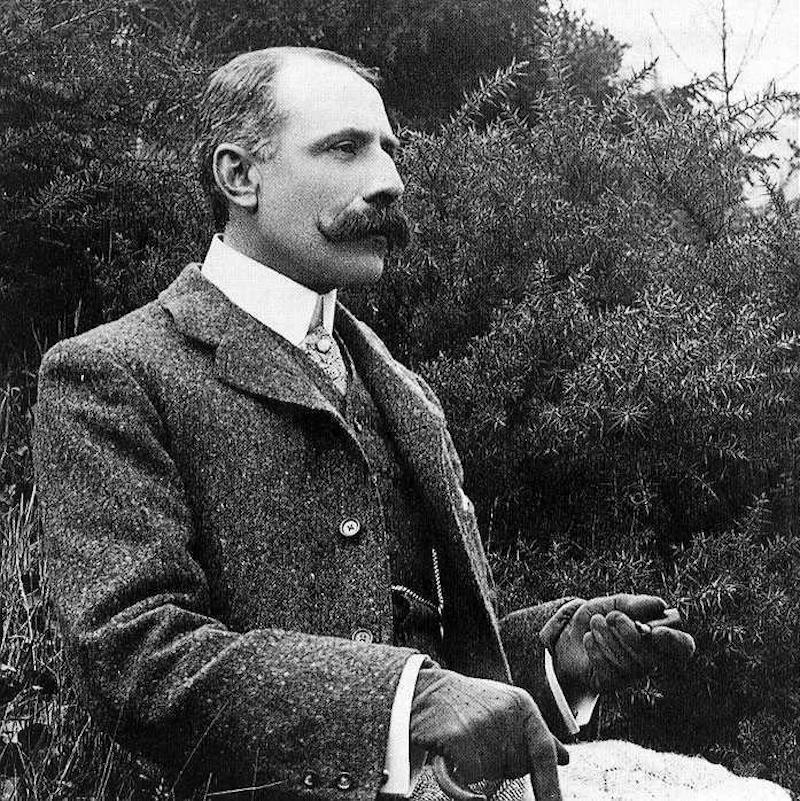
Sir Edward William Elgar was an english composer who never felt like he really fit in socially or musically.
He was Roman Catholic and pulled in musical influences from many other European countries, both controversial actions for that time period in England.
Elgar was born on the 2nd June 1857 in Worcestershire to a father who was a professional violinist.
He and all his siblings learned to play violin and piano from an early age.
In addition to private lessons, he read every book he could get his hands on about music.
Elgar played and conducted in orchestras for many years before he became known as a composer in the 1890s.
Opinions varied widely about Elgar’s work throughout his career.
This is very interesting when considering he was the composer of the Pomp and Circumstance Marches, which have been known and played as “The Graduation March” in almost every graduation in the United States since 1905.
Another famous piece of his was Nimord, from the “Enigma Variations” a famous piece for funerals that is played on Remembrance Sunday in the UK at the cenotaph.
Regardless of public opinion, Elgar was knighted at Buckingham Palace in 1904.
He was a professor of music at the University of Birmingham, and he toured the United States three times between 1905 and 1911, earning a doctorate from Yale University.
Despite all of his success, Elgar suffered from frequent poor health and often felt frustrated by the things it cost him.
He was devastated by his wife’s death in 1920, but turned toward his music and began recording his works, an incredible new advancement in the music industry at that time.
He passed away from cancer on the 23rd February 1934.
5. Thomas Tallis
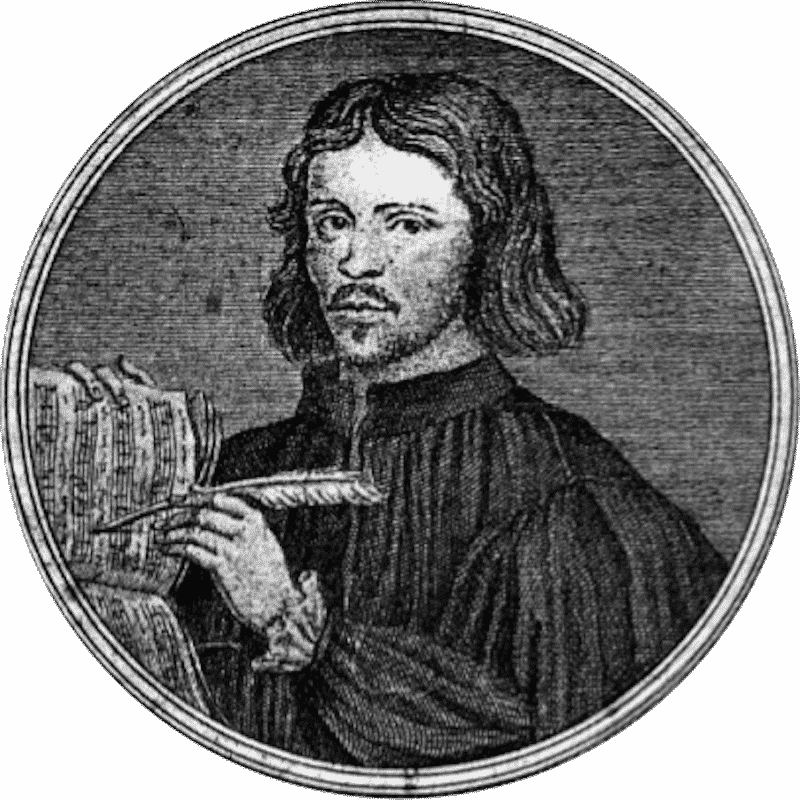
Thomas Tallis was a composer of Renaissance era music, particularly sacred choral music.
Historians believe that he was born around the turn of the 16th Century (around 1500-1520), but records have never been found confirming this or any other details about his birth and childhood.
We do know that he composed and performed music for Henry VIII, Edward VI, Mary I, and Elizabeth I.
The first public record of Tallis puts him as the organist for the Dover Priory in 1531.
Throughout the 1540s, it appears he worked for the Canterbury Cathedral and the Chapel Royal.
His most notable compositions were combined into one manuscript titled The Mulliner Book by Thomas Mulliner.
It is rumored that Queen Elizabeth used this book during her reign.
Tallis is believed to have died in 1585 while he was playing in the house of Elizabeth I, and he is buried in the St. Alfege Church chancel in Greenwich.
The American Episcopal Church recognizes November 21st as a Feast Day in Tallis’s honor.
6. Ralph Vaughan Williams

Ralph Vaughan Williams was a composer of operas, ballets, chamber music, and vocal music.
His main styles were English folk and Tudor music.
Vaughan Williams was born to a wealthy family October 12, 1872 and his father was a vicar.
They were highly moral and progressive, leading Vaughan Williams to become active in service to others, especially in regard to music.
He also came from a musical family, with his aunt Sophy teaching him piano when he was five.
While he was instantly talented, he did not enjoy the piano and turned to the violin only a year later.
At just eight years old, he took music courses through Edinburgh University and then went on to study at the Royal College of Music in London and the Trinity College in Cambridge.
His family had not supported him pursuing a career in music, as they felt he was not talented enough.
But, they agreed to support him in going, as long as he got a non-musical university education, so he also studied history later earning a doctorate of music at Cambridge University.
He quickly began composing folk songs, and he also started writing articles for musical journals.
Vaughan Williams stopped writing music in his 40s to serve in WWI resuming his writing in between wars, but the tone, as well as his mood, had taken a dark turn.
He served in civilian work during WWII, during which he chaired various musical committees and did continue to write.
In 1943, he conducted the premiere of his own Fifth Symphony, which was noted to be much brighter in tone than the Fourth Symphony he composed between wars.
Some of his most well loved music has to be “The Lark Ascending” or his “Fantasia on a Theme by Thomas Tallis”.
Vaughan Williams passed away unexpectedly at the ripe age of 85 on the 26 August 1958.
7. George Frideric Handel
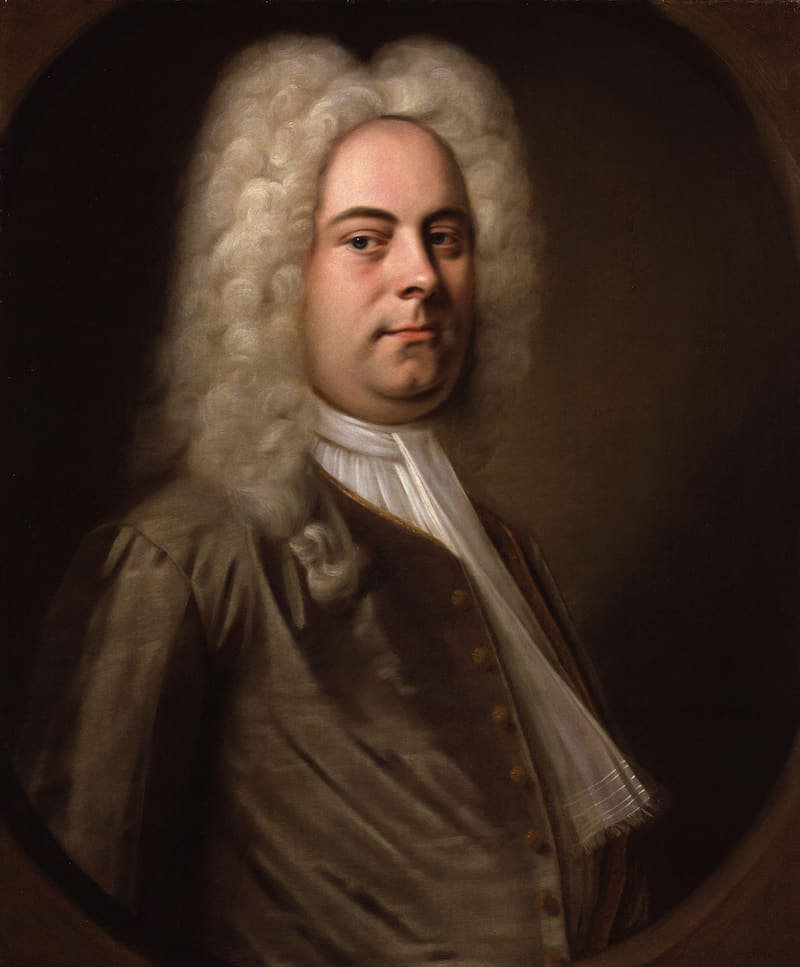
Arguably one of the most famous composers of all time and best known for his operas and concertos, George Frideric Handel was a German-born composer of baroque period music.
Despite his German heritage, Handel moved to London in 1712 and is considered by many to be an english composer.
He was born February 23, 1685, making him the same age as Johann Sebastian Bach.
Handel showed an affinity for music very early, which his father did not condone.
His early musical education took place in secret and it wasn’t until Duke Johann Adolf I noticed his talents and invited him to the court organ in the Holy Trinity palace chapel.
Handel’s father in turn got him organ lessons with the Parish church in their German hometown.
When Handel’s father died in 1697, he obtained the university education his father wanted for him, but then started playing organ for the Calvinist Cathedral in Halle.
He also began composing chamber music there.
In 1703, he began as violinist and harpsichordist in the orchestra in Hamburg, touring in Italy and then in London in 1710.
He became house composer at Canons in Middlesex in 1717 and eventually was asked to compose four anthems for the Coronation of King George II.
In total, Handel composed 42 operas, 12 organ concertos, and almost 200 other pieces but his Messiah is one of the most famous compositions of all time.
Composers have been borrowing from his style and pieces ever since.
By the time he passed away April 14, 1759, he was highly respected and nearly blind.
He was given a state funeral at Westminster Abbey and his buried there.
8. Max Richter
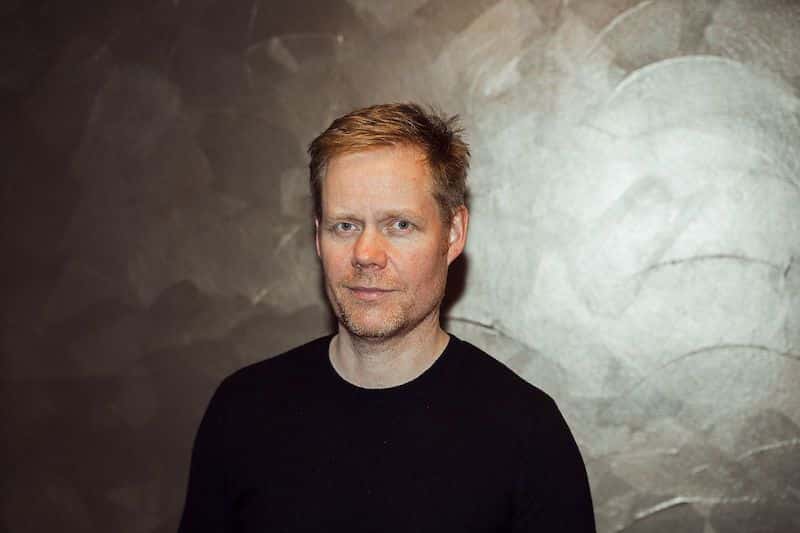
Fast forward to the present, Max Richter is another great British composer born in Germany.
He was born in 22 March, 1966 and grew up in England.
Starting off as a pianist (which he still plays regularly) he attended the University of Edinburgh for composition and piano.
He later went on to study at the Royal Academy of Music in London.
Richter co-founded a classical ensemble called Piano Circus, which occupied his career for the first 10 years following his studies.
Piano Circus was contemporary classical and minimalist in style and featured works of several well known artists and turned out five albums.
From 1996 to 1998, Richter played piano and co-wrote with the band Future Sound of London.
His work is featured in three of the group’s albums.
Richter has collaborated with several other artists on occasion, and he has worked on many film and television scores.
His most notable soundtrack is that of Waltz with Bashir which one a Golden Globe.
Richter has also produced eight solo albums with his most recent album, Voices which debuted in 2020.
Voices features Richter’s original creation, an upside down orchestra.
This orchestra is predominantly basses and cellos, the opposite ratio of a normal orchestra, to reflect Richter’s opposition to post-truth politics.
His inspiration for the album was the Declaration of Human Rights.
9. William Byrd
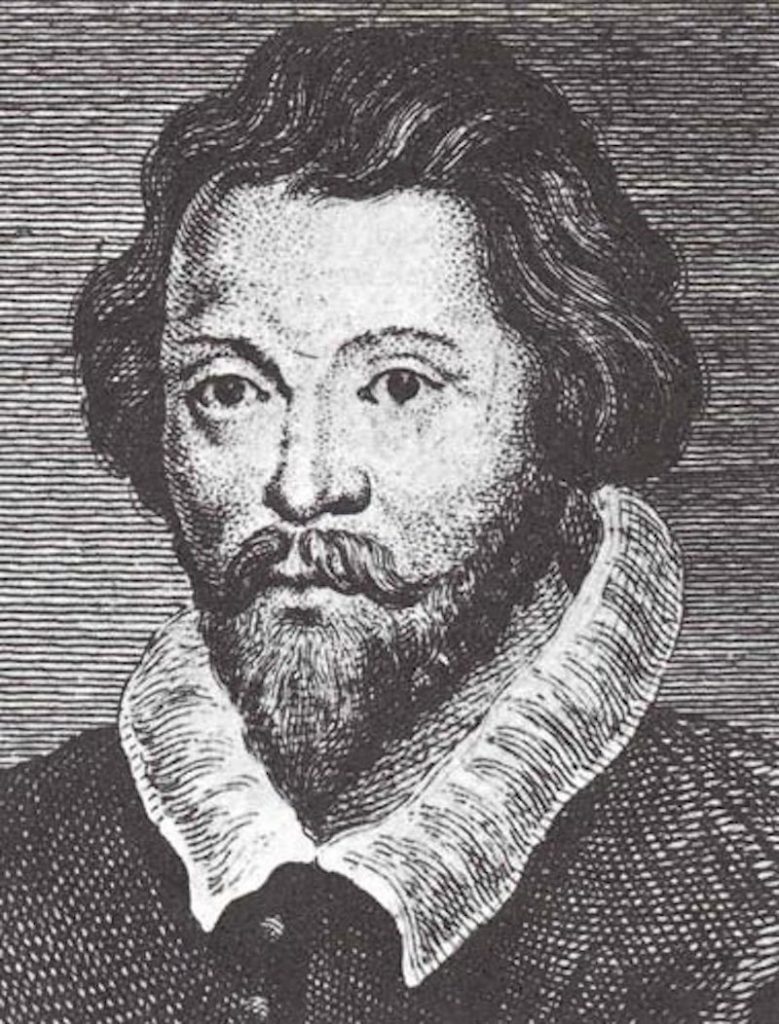
William Byrd is another great British composer whose birth year is only an estimate.
Based on his 1622 will, in which he states that he is 80 years old, historians believe he was born between 1542 and 1543 in Lincoln, England.
While there are records of his brothers serving as choristers at St. Paul’s Cathedral, it is also unknown when or how exactly Byrd began his musical journey.
Historians do know that Byrd began composing music in childhood and served as the organist and master of choristers at Lincoln Cathedral from 1563 to 1572.
At that point, he became the Gentleman for the Chapel Royal which allowed him greater opportunities to compose and produce works enjoyed by Queen Elizabeth I.
In 1575, Byrd published Cantiones sacrae with composer Thomas Tallis, discussed above.
It is believed that Tallis was one of Byrd’s musical educators, influences, and partners throughout the 1570s.
Although it seems Byrd came from a Protestant family, he was a devout Catholic starting in the 1570s.
This both greatly influenced his compositions at the time and caused his suspension from the Chapel Royal as the Catholic Church experienced a period of controversy.
Nevertheless, Byrd continued writing music for the Catholic and Anglican churches for the rest of his life, contributing a total of 470 pieces.
He passed away on the 4th July 1623 and is buried in an unmarked grave in Stondon Massey, Essex.
10. Ethel Smyth
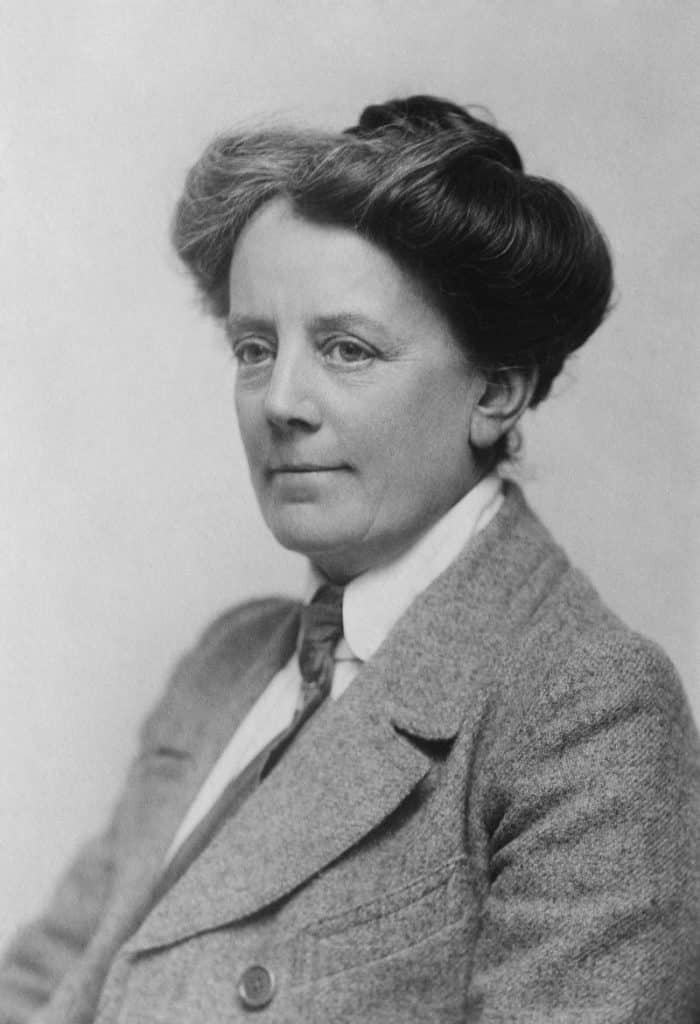
Dame Ethel Mary Smyth was the first notable female British composer and a proud member of the women’s suffrage movement, spending two months in prison after one of her acts of protest.
She was born on the 22nd April 1858 in Kent, number four in a line of eight siblings.
Even though she was born on April 22nd, she always celebrated it on April 23rd so that she could share the occasion with William Shakespeare.
She began playing piano seriously at age 17, even though her father was opposed to her studying music seriously.
Her parents finally allowed her to attend the Leipzig Conservatory, but she was displeased with the level of education she received there.
She took up private study, worked with as many great mentors as she could find, and returned to England to continue her own work.
Two of Smyth’s most notable pieces are Mass in D and an opera called The Wreckers.
For over 100 years, her opera titled Der Wald wsa the only opera by a woman produced at the New York Metropolitan Opera.
Although she met a lot of adversity as a female composer, her music was also featured on the BBC, and she is still featured in women’s rights efforts to this day.
She passed away at age 86 on the 8th May 1944.
Summing up the Best British Composers
Each of these great British composers have either overcome great adversity to produce their famous works or used their compositions to perpetuate a cause they believed in.
Their works have been featured in some of the world’s greatest orchestra halls and on the BBC, in pop albums and feature films, and in sacred places of worship.
Their pieces have withstood the test of time, and they will be remembered for centuries to come.
